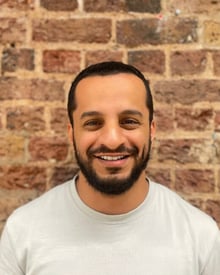[ad_1]
Ahead of Intelligent Health (13-14 September 2023, Basel, Switzerland), we asked Dr Zaid Al-fagih, Co-Founder & CEO, Rhazes AI, his thoughts on the future of AI in healthcare.
Do you think the increased usage of Generative AI and LLMs will have a dramatic impact on the healthcare industry and, if so, how?
The use of generative AI and LLMs carries a lot of promise. Beyond re-stating the obvious use-cases, there are some counterintuitive benefits that may arise from the deployment of AI tools. Two examples that come to mind are AI democratising medical expertise and making medicine a more “human” profession. One might think that these AIs would centralise medical expertise even more in high-tech hospitals. On the contrary, if deployed thoughtfully, AI has the potential to democratise medical knowledge, enabling healthcare providers in remote or less-developed areas to access world-class expertise. Moreover, by taking over the rote and analytical tasks in clinical medicine, AI will allow clinicians to focus on the aspects of their job which are most human, like empathy, communication, and human understanding.
Whether the impact of generative AI will be truly dramatic will depend on how we navigate the inevitably incoming trough of disillusionment that will follow our current stage in AI’s hype cycle. Will we be able to overcome the challenges of over-reliance, data privacy, healthcare inequality, etc. and will regulators catch up with the rate of technological development?
If you could solve any global health problem in the world with AI, what would it be?
Diagnostic errors in clinical medicine. They are an elusive problem that kills and harms millions of humans every year, in every corner of the globe. They are also difficult to properly measure at regular intervals so people sometimes forget they exist.
Diagnosis is low-hanging fruit for AI. It’s a perfect AI problem: it involves the analysis of patient data to extract patterns and relationships. The tools to do this already exist – the only challenges that remain are validation, deployment, and scaling.

What do you think will be the biggest impact of AI and tech in the healthcare sector in the next 5 years?
The automation of clinical workflows – particularly the rote ones – will have a massive impact on healthcare. The quickest impact will likely emerge from the workflows that can be automated without having to go through a complex bureaucratic process. The most immediate wins can be automating much of the paperwork that healthcare professionals need to do.
It may not seem “cool”, but simple things like automating the generation of a discharge summary or a referral to another specialty will save doctors time, cut healthcare systems’ costs whilst increasing their revenues, and probably improve patient outcomes indirectly. The impact at the macro-level will be huge.
What’s your biggest fear around the application of AI/tech in the healthcare field?
My biggest fear around the application of AI and technology in healthcare is over-regulation. While it’s crucial to have a strong regulatory framework to ensure the safety, efficacy, and ethical application of these technologies, there’s a fine line between prudent oversight and stifling innovation. Over-regulation can slow down the development and deployment of potentially life-saving technologies.
Additionally, stringent regulations can raise the barrier to entry for startups and smaller companies, leading to a market dominated by a few large players. This lack of competition can stifle creativity and innovation, and it may result in solutions that are not as patient-centric as they could be.
Regulations should aim to foster a collaborative environment where technologists, healthcare providers, and policymakers can work together to find the best path forward. While we need to err on the side of caution to protect patient data and ensure equitable healthcare, overdoing it could freeze the transformative potential that AI and technology offer. Therefore, achieving a balanced regulatory framework is essential for unlocking the vast potential of AI in healthcare.
What two people do you admire most in the world of healthcare?
Probably Atul Gawande and Hans Rosling.
About Dr Zaid Al-fagih
Dr Zaid Al-fagih is the Co-Founder and CEO of Rhazes AI. He is a medical doctor who has worked in challenging healthcare environments, including warzones. He is also a previous health tech founder and has worked in cross-disciplinary research on applying technology to solve problems in healthcare. He also holds a Master of Public Policy from the University of Oxford’s Blavatnik School of Government and a BSc in Management from Imperial College Business School.
Global AI events calendar
Intelligent Health
13-14 September 2023
Basel, Switzerland
World Summit AI
11-12 October 2023
Amsterdam, Netherlands
World AI Week
9-13 October 2023
Amsterdam, Netherlands
World Summit AI Americas
24-25 April 2024
Montréal, Canada
Share your content with the Intelligent Health community
Got some interesting content you want to share with our community of AI and health Brains? You can send us anything from a published piece you have written online, white paper, article or interview. Submit it here
[ad_2]
